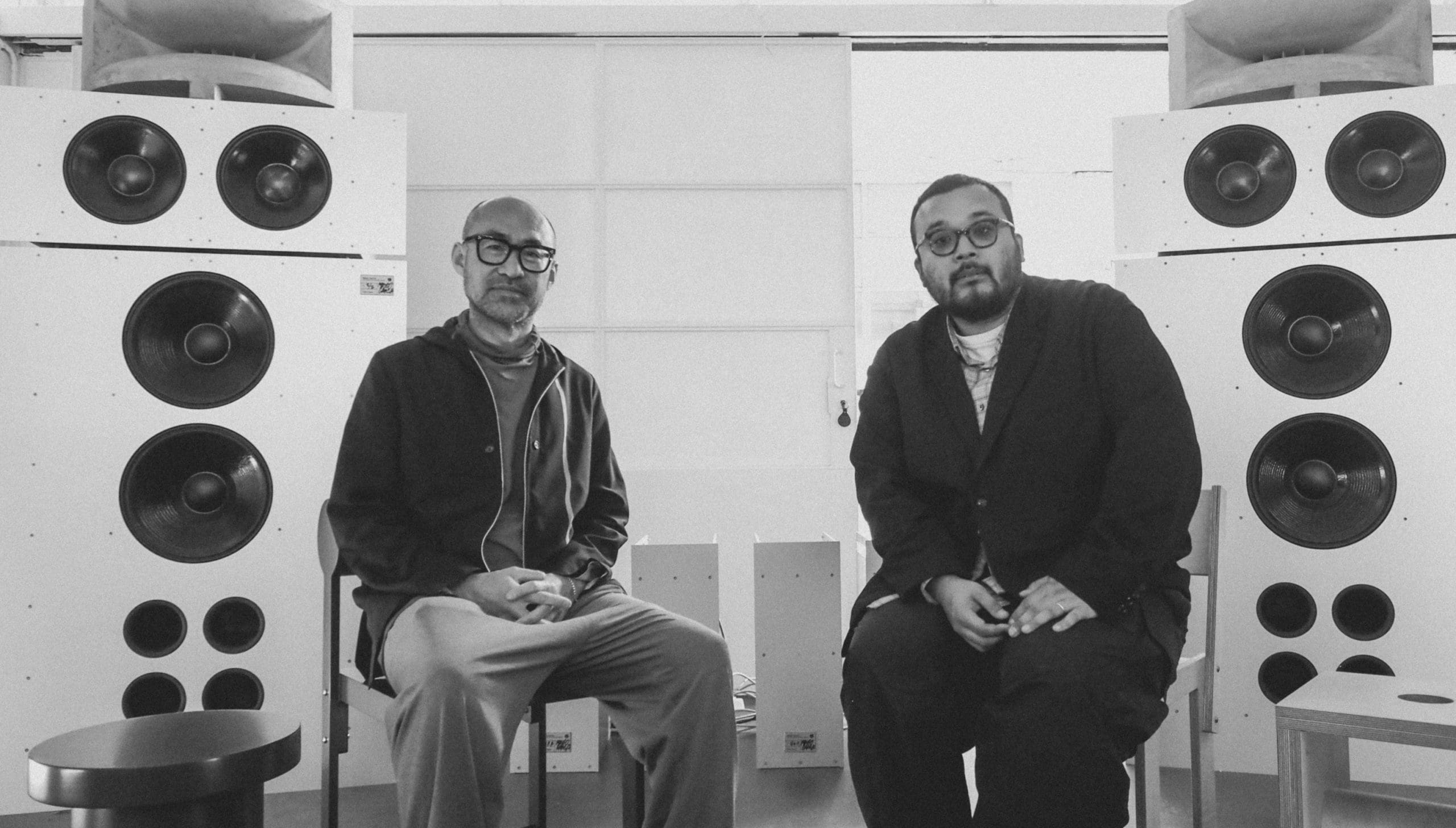For its first appearance at Salone del Mobile, Japanese alternative luxury brand Vowels, led by Yuki Yagi, teams up with WAKA WAKA, the Los Angeles-based studio of Shin Okuda, to present a capsule collection of wooden furniture.
Part of Capsule Plaza—this year expanded across Spazio Maiocchi, M23, and Piazza Risorgimento—the exhibition features stools and chairs designed exclusively for Vowels. Blending Okuda’s sculptural approach with Yagi’s focus on functional minimalism, the pieces explore volume, linearity, and adaptability to contemporary living spaces.
In conversation with Yagi and Okuda, the project emerges as a natural extension of their shared ethos: a love for essential forms, artisanal processes, and slow, intentional making.
Ritamorena Zotti: How did the collaboration between WAKA WAKA and Vowels come about, and what drew you to this design challenge?
Shin Okuda: He came to my studio, and that was the first time I met him. But he is really hard to catch. We tried to meet many times, and he was always struggling. And finally, he came to Los Angeles to my studio. And he had a lot of books. And then he listed all the books that I liked. So from the beginning, we knew we were on the same page in terms of design, I thought. We were like, let’s just build something together and present it for Salone. And this is it.
RZ: Your aesthetic often centers around essential forms and a strong focus on volume—how are these principles reflected in the pieces created for Vowels?
Yuki Yagi: Well, I guess the aesthetic of form, essential form is that throughout my career, I’ve learned a lot about basics and staple wear, like everyday clothing that you would wear, and not a lot of the fashion-forward products. So I thought it was best to create a brand where any of these staple pieces can figure in the daily wardrobe. And in terms of the volume, we have a very large count of archives that we reference from. So we thought that it would kind of play a good balance between those two aspects.
RZ: What materials and artisanal techniques did you choose for this collection, and why? Are there any details that tell a particular story or process?
YY: All our denims are produced in Japan, in Kochima, which is in Okayama Prefecture. It’s where they probably produce one of the finest denims in the world. So we basically source, we have pure water and pure denim, really good high-quality cotton yarns. So we just try to produce one of the best old looms that we have. So these are basically the old shuttle looms or salvage centre machines that were how the 60s or 70s or 50s or the 70s were made.
YY: And that alone itself is a very precious concept. And then for example, we have these white floral embroidered shirts, jackets. This is actually all embroidered in white first, and then they digitally print it on top. So it’s a very high-tech fabric manufacturing. And then even for this, it might seem like a printed shirt for you, but it’s actually a dabi woven fabric. So if you look close, there’s a dabi effect. And all of our products are basically referencing from the past and recreating it into a more modernised style.
RZ: How did you approach the idea of “adaptability” in furniture for contemporary spaces? In what ways does the collection respond to this need?
YY: We’re making essential clothing for the daily people. We wanted to create a collaboration which was meant for the everyday people, furniture for the everyday people. So it seamlessly, effortlessly connects.
RZ: The exhibition is part of Capsule Plaza, an event that blends design, art, and culture. What message or experience do you hope the audience takes away from seeing your work?
SO: So this is the first time for me to be in Milan, and I always wanted to come. So this is a really unique setup for me. It’s the fashion, and then the capsule is pretty strong visibility. And then I think it’s a great opportunity to team up with the Vowels. I guess the goal is for people just to learn as much as possible with what’s supplied in front of them. Because I do think that offering culture and knowledge should be free. So just like how our staff is reading books, any kind of input. And if they can walk out of this room with a little bit more knowledge, I think that’s the whole concept or the point of this.
RZ: Better Late Than Never: How important is slowness in your creative process?
SO: Okay, so I make furniture and everything in my studio. Essential. Yeah, and then I design, I cut, and I work with my team. We assemble, sand, there’s no editing. You have to go one step by one step. You can’t skip any process. And then as a maker, it’s obvious. But then for the consumers now, it’s like, you know, it’s not a digital format. I cannot produce many things.
There’s a limited amount of pieces that I can create. Manufactured in my studio, and they’re supposedly the same, but each one is handmade. It’s not perfectly the same.
I don’t know, slowness. I just enjoy the process. Like a process of making, that would be great.
YY: It’s all trial and error at the end of the day. So the slowness is kind of like pain that you have to go through as a creator. So I think that’s, it’s a necessity when you’re creating so many goods. So I think that’s the part of slowness, I guess. It’s all trial and error.







